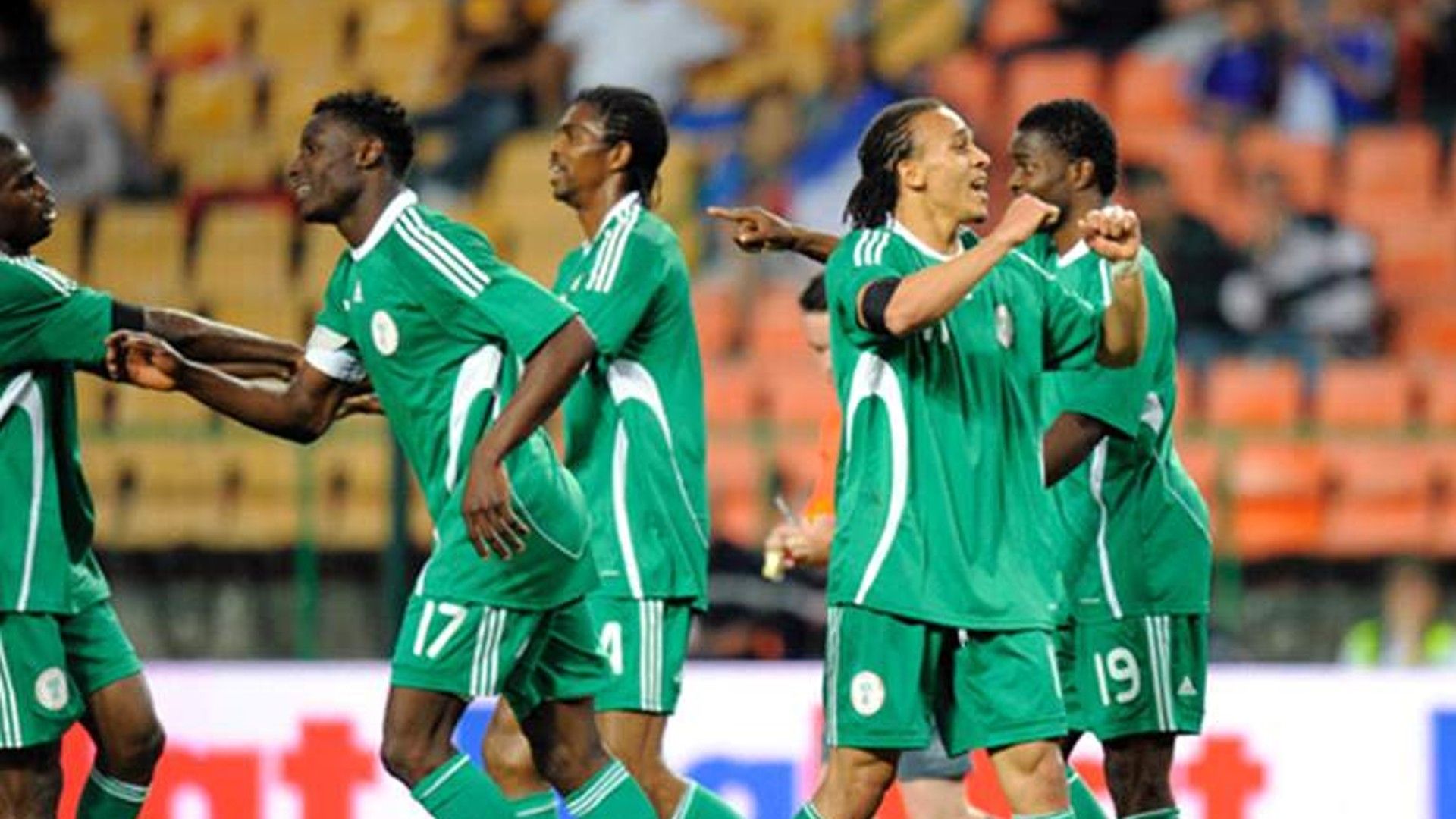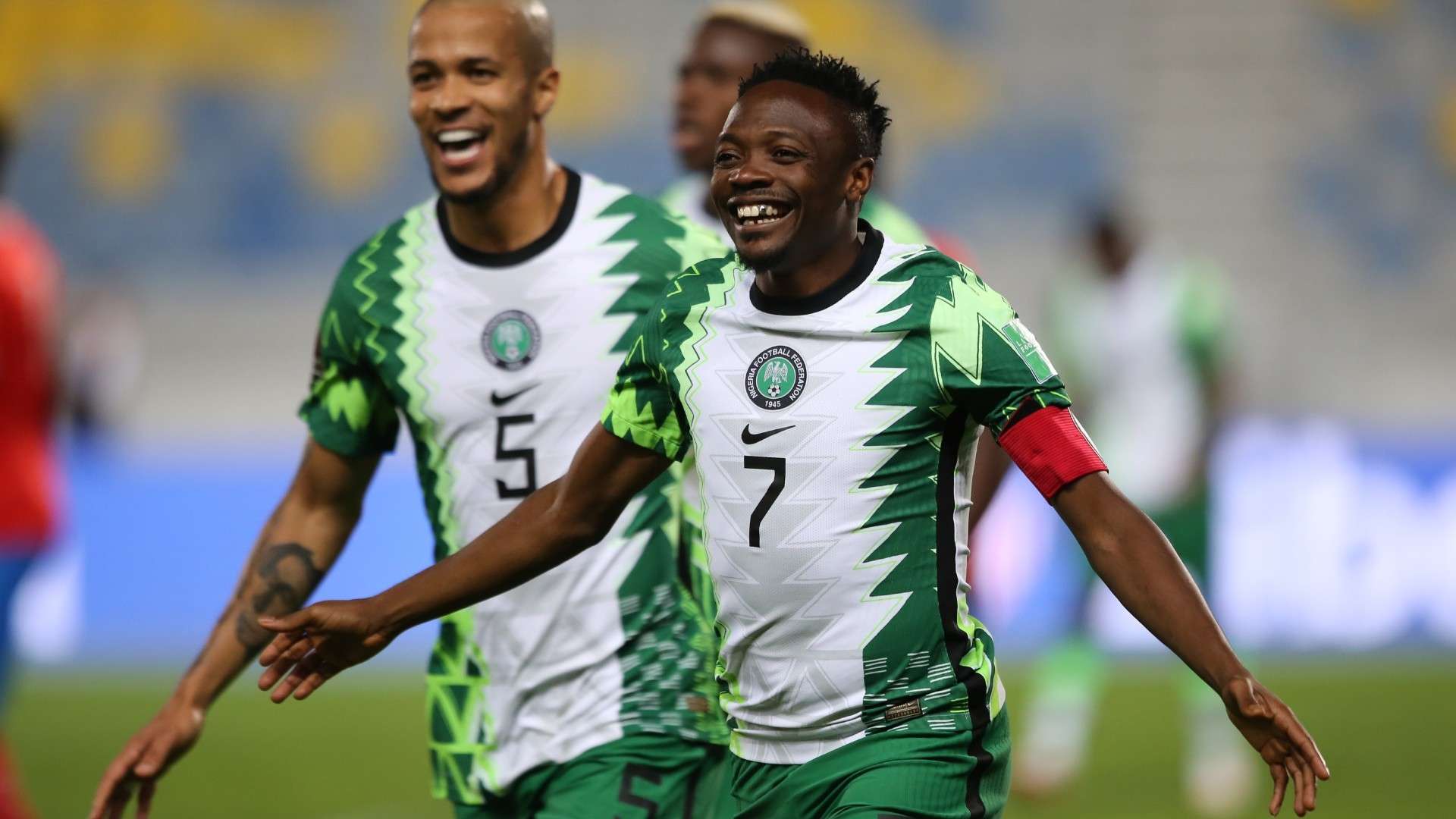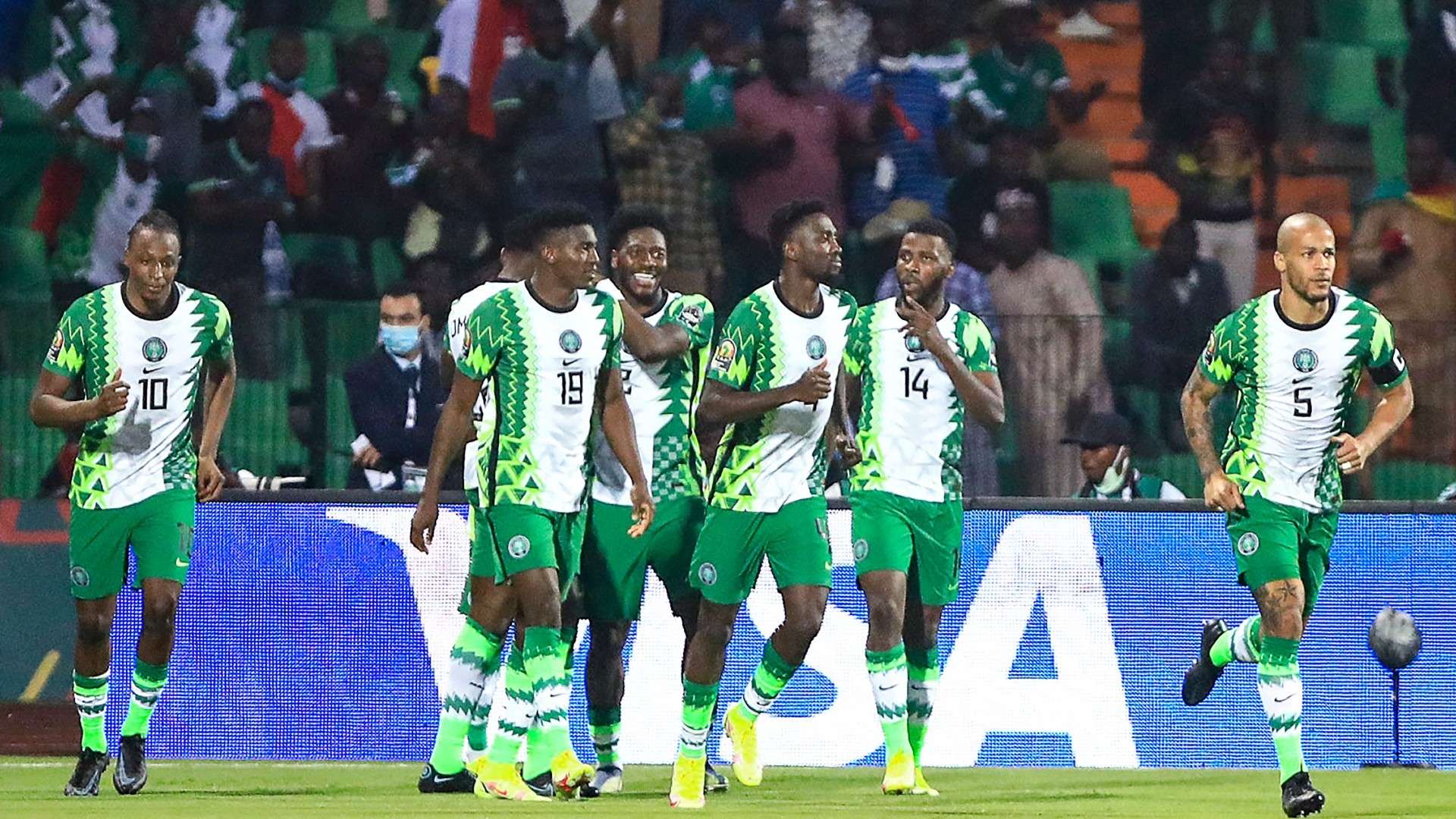In search of their seventh appearance ticket to the World Cup, Nigeria will face Ghana in back-to-back qualifiers in late March.
The Black Stars, who have themselves qualified three times, will host the Super Eagles on March 25 at Baba Yara Stadium in Kumasi before the return leg on March 29 at Abuja National Stadium.
Debutants
The Super Eagles, three-time African champions, made their first World Cup appearance in 1994 – the 15th World Cup held in the United States - then managed by Clemens Westerhof, a Dutch football manager.
Despite being debutants, Nigeria emerged as Group D winners in a pool that consisted of Argentina, Bulgaria, and Greece. They saw off Bulgaria by a 3-0 margin, went down to Argentina by a 2-1 scoreline, before picking up a 2-0 victory that enabled them to book a place in the second round.
In the second round, they faced Italy and showed great resilience against their European rivals. Emmanuel Amunike scored the opener, but the Azzurri fought back as they scored through Roberto Baggio, whose equalizer pushed the game to extra time.
The former Juventus, AC Milan, and Inter Milan star scored again in extra time to eliminate the African representatives.
The Super Eagles returned to the world stage in 1998 as they represented the continent alongside South Africa, Cameroon, Tunisia, and Morocco.
Again, they found themselves in the same group as Bulgaria when they were drawn into Group D. Spain and Paraguay were the other members of the group.
Spain Stunned
They recorded a surprising 3-2 win over Spain as they came back twice after they had gone down 1-0 and 2-1. Although they lost to Paraguay, a win against Bulgaria saw them progress to the second round.
They, however, lost 4-1 to Denmark and exited the tournament at the same stage as their debut four years back.
In the 2002 World Cup jointly held by South Korea and Japan, the West Africans landed in Group F alongside Argentina – who defeated them in 1994 - England and Sweden. After a solid hour-long performance against the South Americans, Nigeria conceded in the 61st minute when Gabriel Batistuta scored as the Argentines went on to pick up a win in the group opening duel.
Against Sweden, they took the lead but lost by a 2-1 margin, before they registered a goalless draw against the Three Lions and ended up finishing at the bottom of their pool, which had been nicknamed the 'group of death’.
2006 Absence
The Super Eagles, after what had become a rather consistent appearance in the global competition, missed the 2006 tournament held in Germany. They finished level with Angola and an inferior goal difference denied them a ticket.
They made their way back to the 2010 edition held in South Africa and were unable to beat Argentina – who scored a controversial header by Gabriel Heinze - as they found themselves in the same group again.
_Uche_2010.jpg?format=pjpg&auto=webp&width=3840&quality=60) GOAL.
GOAL.Against Greece, they lost 2-1, despite taking the lead through Kalu Uche, but a red card to Sani Kaita handed the opponents a numerical advantage.
Again, as was the case in the previous tournament, the Super Eagles finished at the bottom of their group after a 2-1 loss against South Korea in the final Group B game.
Suspension
The poor performance saw then President Goodluck Jonathan suspend the national team for two years, but the decision was rescinded later before Fifa suspended them for two years too, later lifted to allow Nigeria to compete in international games.
Against expectations, Nigeria opened the 2014 edition with a 0-0 draw against Iran. They registered their first World Cup win for the first time since 1998 after Peter Odemwingie scored against Bosnia and Herzegovina in the second Group F encounter.
As they faced Argentina, it was largely a Lionel Messi and Ahmed Musa show. The PSG forward opened the scoring for the Argentines in the third minute, but Musa cancelled it instantly before Messi scored the second for his side just before halftime.
Nigeria restored parity as Musa struck in the second half, but Marcos Rojo later found the back of the net for the winning goal for the Copa America side. The Super Eagles finished second and advanced to the knockout stage.
 Backpagepix
BackpagepixIn the Round of 16, Emmanuel Emenike scored, but his 18th-minute goal was ruled out as they went on to lose 2-0 against France courtesy of Paul Pogba’s goal and an own goal by Joseph Yobo.
For the third time, Nigeria were eliminated at the same stage in the global bonanza.
The Super Eagles became the first African country to book a ticket for the 2018 World Cup in Russia after emerging winners in a qualifying group that consisted of Zambia, Algeria, and Cameroon.
Missed Chance
On the global stage, they opened Group D’s duties with a 2-0 loss to Croatia before they registered a 2-0 victory against Iceland as Musa bagged his brace.
The African representatives bottled their chance to enter the knockout stage as they lost to Argentina by a 2-1 margin. Argentina’s loss against Croatia gave Gernot Rohr’s side an advantage which they could not take, as they ended up finishing third in the group.
Now, only Ghana stands between them and their next World Cup ticket. Will the Super Eagles manage to see off their neighbours?
Will the three-time Afcon champions, should they qualify, eventually manage to beat the Round of 16 curses and progress to the quarter-finals?
Disclaimer: All information is accurate at the time of publication.


